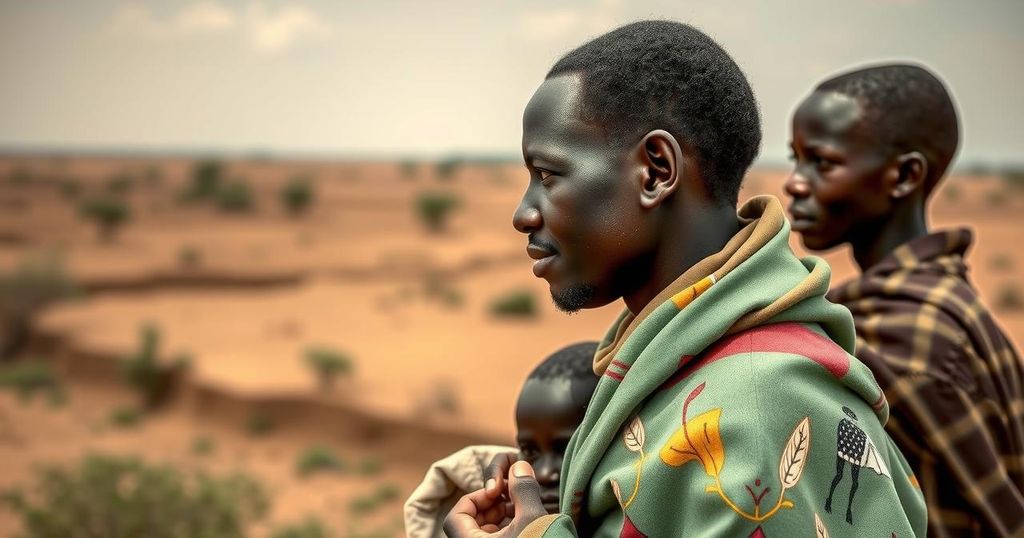South Sudan, afflicted by perpetual conflict and insecurity, faces challenges deeply rooted in its history of colonialism and internal strife. The path to sustainable peace lies in “re-membering” – confronting injustices, fostering a shared narrative, and engaging in inclusive dialogue among all stakeholders. The establishment of a new social contract and structural reforms is essential to ensure governance, justice, and ongoing healing among the South Sudanese people.
South Sudan, recognized as the world’s newest nation, is unfortunately characterized by persistent conflict, insecurity, and various humanitarian crises. The issues faced by South Sudan cannot be solely attributed to events since its independence in 2011; rather, they are deeply rooted in its turbulent history, including colonialism and internal strife. To achieve sustainable peace, South Sudan must undergo a process of “re-membering,” addressing historical injustices, and fostering a collective narrative that promotes healing and unity.
At its core, South Sudan’s troubles stem from a legacy of colonial exploitation and systemic division imposed by foreign powers. Historical injustices have created distrust and intergenerational trauma among communities, perpetuating cycles of violence that hinder national cohesion. The lack of a shared understanding of governance and co-existence after independence has left South Sudan vulnerable to internal conflicts and external influence. A robust dialogue among various stakeholders, including community leaders and civil society, is essential to confront the nation’s painful past and move towards reconciliation.
Addressing historical grievances involves acknowledging both external and internal sources of violence and division. It is crucial for all stakeholders, including past colonial powers, to take responsibility for their roles in these injustices. Furthermore, creating a discourse that promotes inclusivity will help foster a shared national identity among the South Sudanese people. This collective understanding is imperative, as it challenges the notion of simplistic tribal rivalries that often overshadow the real issues at hand.
Recommendations for South Sudan include initiating comprehensive leadership dialogues aimed at truth-telling and justice, fostering national conversations about reconciliation, and crafting a new social contract based on shared governance and mutual respect. Structural reforms must prioritize equitable resource distribution and invest in social services to break the cycle of underdevelopment. Moreover, incorporating traditional practices into conflict resolution can enhance trust in local systems and promote lasting peace.
Lastly, it is vital to adopt a holistic approach that addresses not just the symptoms of conflict but the root causes, recognizing that South Sudanese society’s complexities cannot be simplified. The journey towards a cohesive, peaceful nation lies in the commitment to confronting the past, recognizing shared humanity, and collaboratively constructing a narrative of resilience and hope.
The complexities surrounding South Sudan stem from its tumultuous history marked by colonial exploitation and systemic division. Since attaining independence in 2011, South Sudan has been embroiled in conflict, characterized by power struggles and humanitarian crises. The article emphasizes that these difficulties are not new and are deeply rooted in the historical injustices that have not been adequately addressed. Acknowledging these roots is presented as essential for the path toward sustainable peace and national unity.
In conclusion, the multifaceted challenges facing South Sudan necessitate a deep understanding of its historical contexts. By recognizing and confronting the injustices of the past through a process of re-membering, inclusivity, and truth-telling, South Sudan can forge a new identity. Building a social contract based on mutual respect and equitable governance stands as a pathway toward lasting peace and collective healing for the South Sudanese people. Only through such deliberate efforts can the promise of independence be truly fulfilled, guiding South Sudan from a narrative of division to one of unity and resilience.
Original Source: www.radiotamazuj.org






